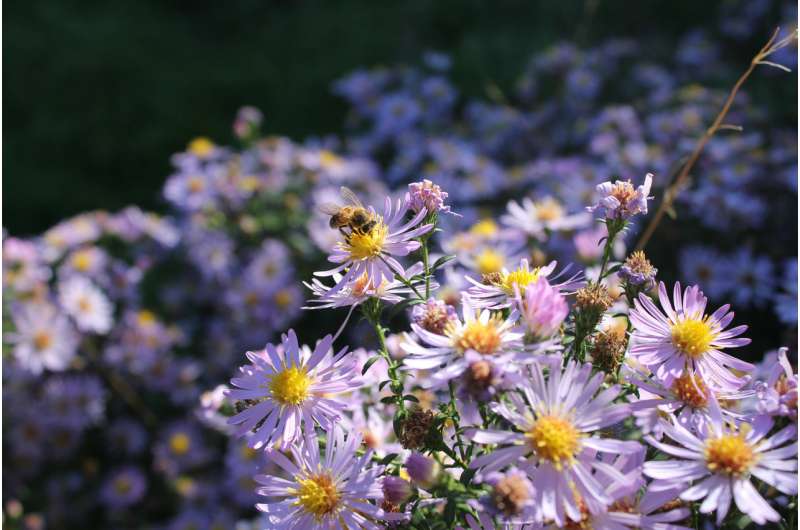Supply chains at risk as wild pollinators decline

Companies are facing potential shortages of raw materials, a fall in crop quality and challenges around security of supply because of an emerging pollination deficit, a new report funded by the Cambridge Conservation Initiative has found.
A recent global assessment of the status of pollinators highlighted that around three-quarters of food crops depend on pollination, making pollinators worth up to US$577 billion annually, half of which comes from wild pollinators. However, pollinator populations are declining rapidly, with 9% or more of many wild bee and butterfly species facing local extinction.
The report, authored by UN Environment World Conservation Monitoring Centre (UNEP-WCMC), Cambridge Institute for Sustainability Leadership (CISL), Fauna & Flora International (FFI) and the University of East Anglia (UEA), found that businesses lacked information about the risks to their supply chains.
In a survey of eight blue chip companies including Asda, Barry Callebaut, The Body Shop, The Jordans & Ryvita Company, Mars Incorporated and PepsiCo, many reported they were unable to take action to address these risks because of uncertainty around which crops and sourcing regions are vulnerable to pollinator decline, and about the business case for action.
"Less than half the companies sampled know which of the raw materials they source depend on pollinators," said Gemma Cranston, Director, Natural Capital, CISL. "Their supply chains could be at risk. More research is needed to identify where opportunities exist to reverse current trends in pollinator decline."
Jos van Oostrum, Director Sustainable Solutions, Mars Incorporated, said: "The role pollinators play – be it tiny midges for cocoa or squirrels for coconut – is not well understood and can be taken for granted. It is of critical importance we understand their lifecycles, and the habitat and conditions which enable them to thrive. This does not only help safeguard productivity of the crops we depend on, but it could also help establish ways to boost their yield potential."
One of the key solutions for more sustainable supply chains is certification schemes. A review of nine such programmes showed that some action is being taken particularly to encourage reduced pesticide use and encourage habitat restoration, but more could be done.
"Certification schemes play an important role in driving corporate best practice. Effective integration of the needs of wild pollinators into such schemes will help companies to move faster on this issue," said Laura Fox, Senior Programme Manager, FFI.
"Concerning lack of knowledge"
The experts also assessed the vulnerability of the top 15 pollinator-dependent food crops. Preliminary results suggested that these crops are vulnerable to pollinator decline, with cocoa being particularly at risk.
"Pollinator decline is a serious issue for crops where wild pollinators are important to production and can't easily be replaced, because managed bees can't do the job, or the need for them isn't widely recognised," said Dr. Lynn Dicks, Research Fellow at UEA.
"Our analysis is revealing a concerning lack of knowledge about the status of agricultural pollination and its replaceability in large parts of the world, despite its clear importance to production of some highly valued ingredients."
Francesca Brkic, International Sustainable Sourcing Manager at The Body Shop, said: "The importance of pollination for natural raw materials is increasingly a priority for us. We are analysing the importance of pollination within our business to understand how we must act. Bees are very important to us and we recognise the positive impact that comes out of sustainable trade to supply chains that depend on pollinators as well as communities who produce honey and beeswax as an integral part of their livelihoods."
The organisations involved in the project now hope to collaborate with industry, governments, certification bodies, trade associations and pollination experts to create a leadership group of companies and standard-setting bodies committed to safeguarding pollinators.
"We call on leading companies and standard setters to work with us to create a Partnership for Pollinators to collaborate to increase supply chain resilience," said Annelisa Grigg, Principal Business and Biodiversity Specialist, UNEP-WCMC.
"It is only by working in partnership in this way that we will be able to understand the full extent of the risks posed by pollinator decline to our vital agricultural supply chains and catalyse action to halt wild pollinator decline."
Provided by Fauna & Flora International



















